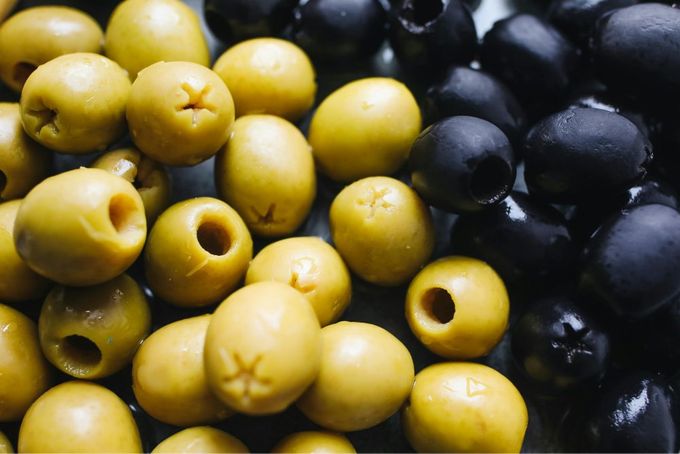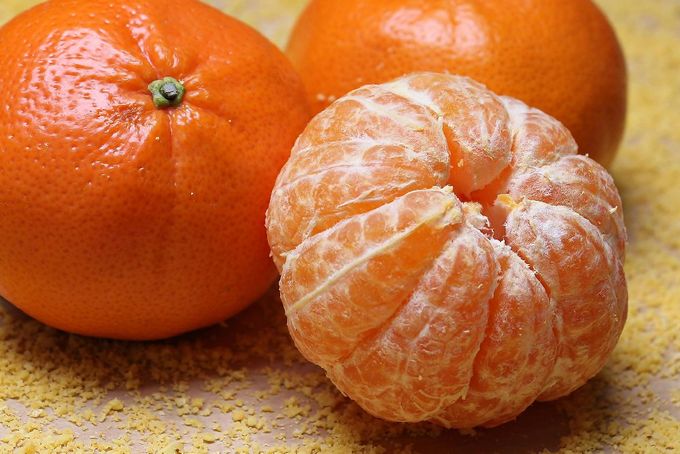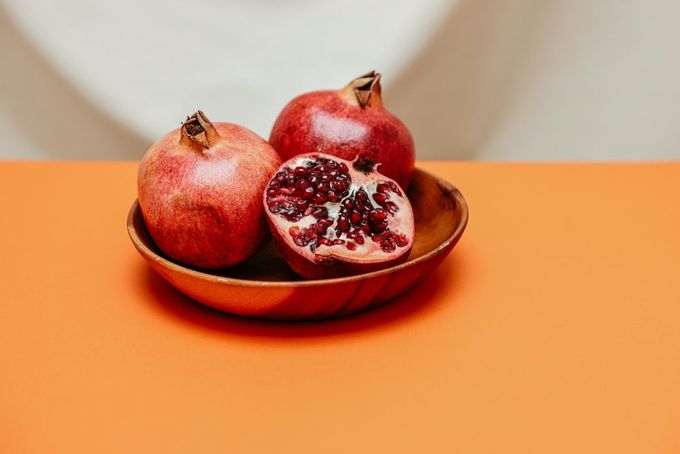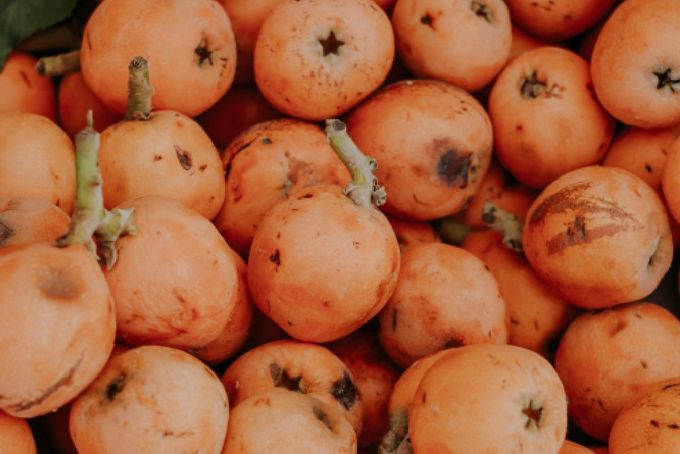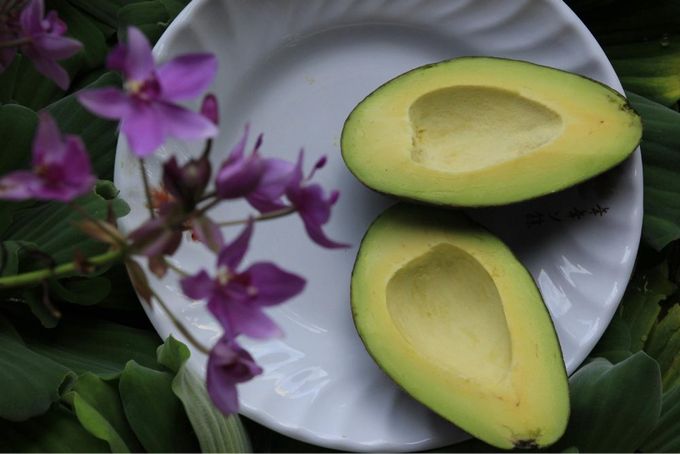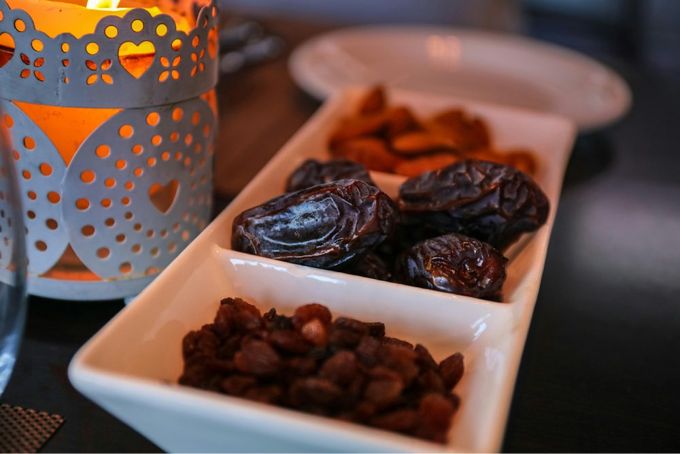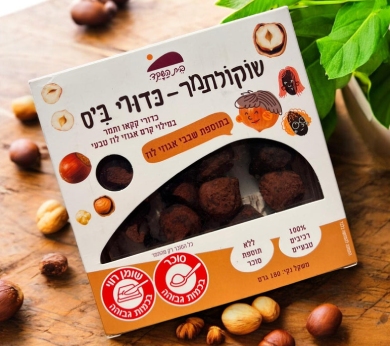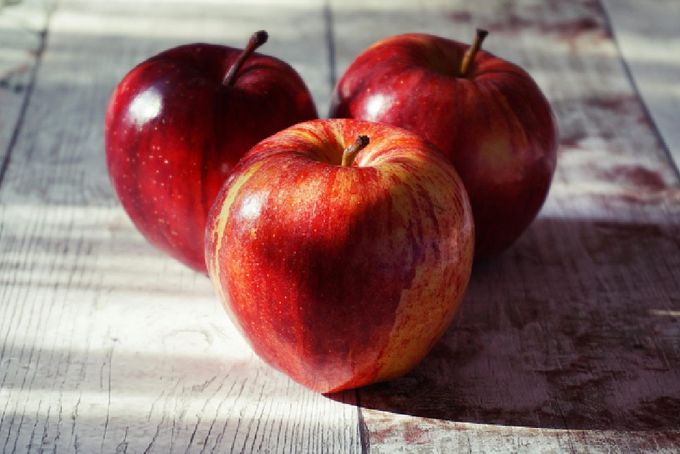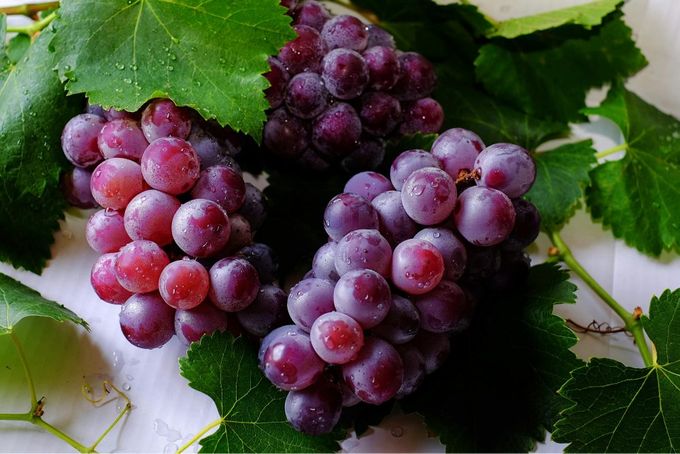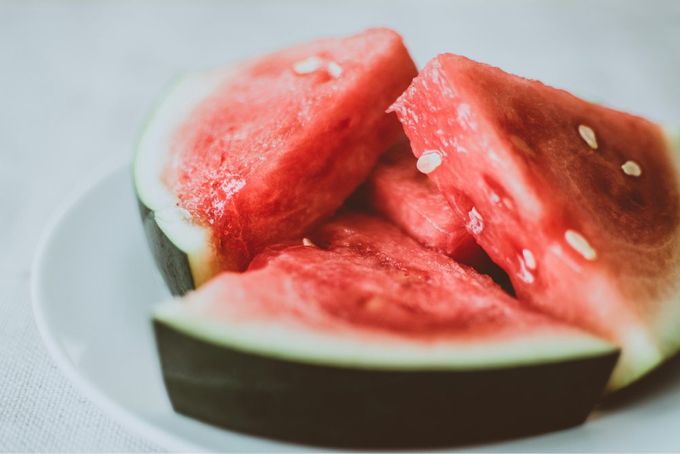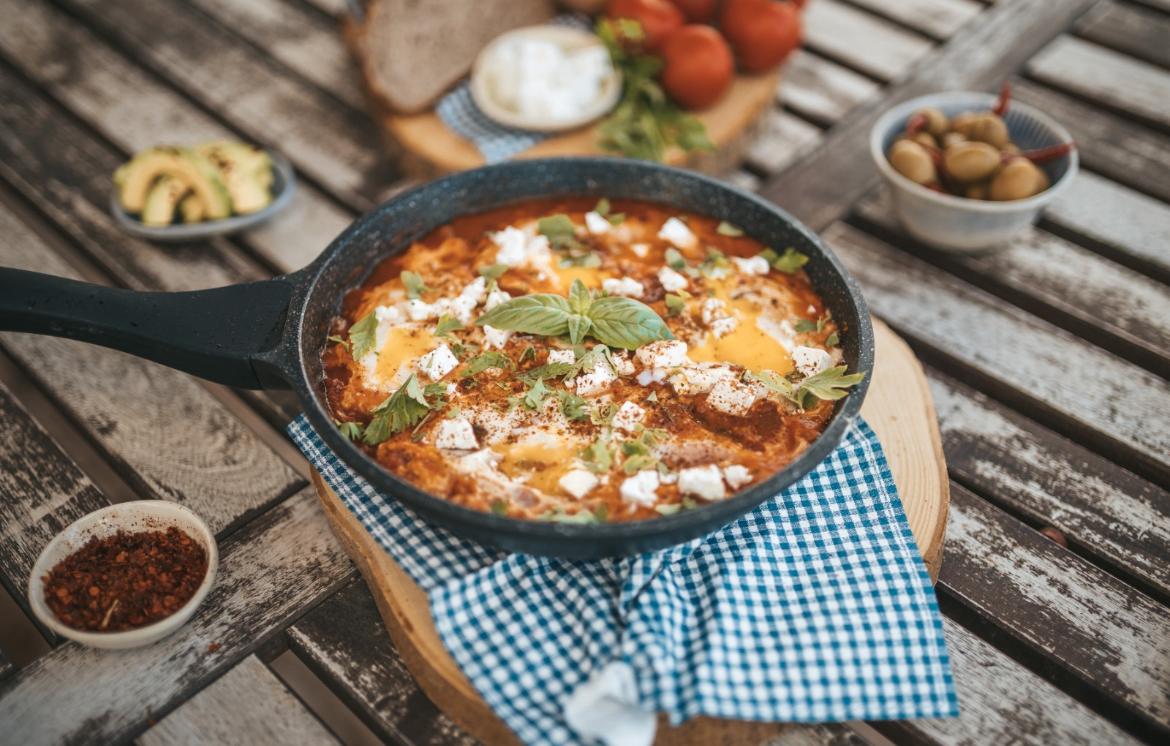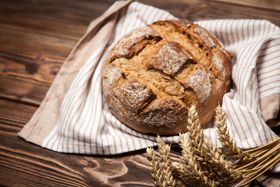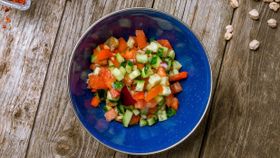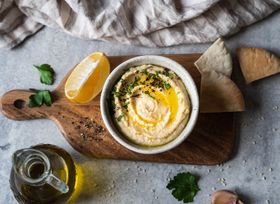9 Delicious Fruits Grown in Israel (Including Native Fruits)
Did you know Israel’s arid deserts and valleys hide fruits so unique that they’ve been savored since biblical times? Dive into vibrant flavors and taste the legacy of a land where every bite tells a story.
Published April 28, 2025

Have you ever stood in the grocery aisle, bored by the same apples, bananas, and grapes lining the shelves? You crave something vibrant, bursting with unfamiliar flavors, or maybe even a fruit with a story—something that feels both exotic and nourishing.
Israel’s diverse landscapes—from sun-baked deserts to fertile valleys—hide a secret: they’re home to some of the world’s most intriguing fruits. Below, we’ll explore a list of delicious fruits grown in Israel, from biblical-era native species to modern marvels.
» Browse a collection of Israeli food, snacks, and spices
How Israel's Climate Nurtures Fruit Growth
Israel has diverse climates. For example, coastal regions are Mediterranean-like, with heavy humidity and temperatures ranging from 16°C to 29 °C (60°F to 84°F) depending on the time of year.
The south, specifically the Negev desert, is dry, with temperatures ranging between 21 °C and 46 °C (70°F and 114 °F). A semi-arid strip lies between the desert and the coastal region.
The country goes through two seasons in the year: summer from May to September and winter from October to April.
Summers are dry and hot, while winters are cool and rainy. Israel's climate conditions result in a wide variety of fruit crops, such as apples, avocados, grapes, and dates.
Regions That Grow the Most Fruit
The most fertile areas in Israel for growing fruit are:
- Mediterranean Coastal Plain: This region is perfect for fruits that require a good amount of rain and fertile, well-drained soils. These include citrus fruits, avocados, kiwis, and mangoes.
- Galilee and Golan Heights: These two areas are suitable for growing apples, with cool temperatures and perfect altitudes (500 to 1200 meters or 1,640 to 3,940 feet).
- Negev Desert: Hot, dry areas are perfect for more hardy Israeli fruits such as dates. Dates need a significant amount of heat and sunlight for proper ripening and the development of their characteristic high sugar content.
- Other: Fruits such as grapes and olives thrive in several regions across the country, such as the Galilee region, Golan Heights, Judean Hills, and Negev Highlands.
» Find out what makes up a traditional Israeli breakfast
How Israel's Soil Affects Fruit Growing
High-quality fruit production in Israel heavily depends on soil type and water availability. With only about 30% of the land being suitable for agriculture, growers take good care to find the most suitable Israeli fruits for the region in which they farm.
Farmers are also very keen on using drip irrigation in areas with heavy rainfall and greenhouses where they need to control temperature and humidity. They may also use various fertilizers to improve crop yields.
» Learn more about Israeli spices and how you can use them
9 Delicious Fruits That Grow in Israel
1. Olives
Olives are a culturally and religiously important fruit in Israel. In the Bible, Noah's dove returns with an olive leaf, signaling the flood's end. These small, oval fruits have a fleshy exterior and contain one or two seeds. About 90% of Israeli olives are pressed into oil, while the remainder are cured for eating.
Olives vary in color (green to black) and flavor (bitter to sweet). They're used in salads, spreads, sandwiches, and as pizza toppings.
The health benefits of olives are:
- High in Vitamin E for skin health and immunity
- Rich in antioxidants
- Black olives provide iron
- It may reduce the risk of osteoporosis, heart disease, and cognitive conditions.
- Olive oil contains healthy unsaturated fats
Olive trees grow throughout Israel, including Galilee, the coastal plain, and the Negev. They are among the seven biblically significant species mentioned in Deuteronomy 8:8.
Historically, olive oil served multiple purposes: cooking, lighting, sacrificial offerings, and anointing royalty and priests. Today, it is prominently featured in the Chanukah festival, commemorating the eight days one bottle lasted during the Maccabean revolt.
» Discover the Biblical significance of Jesus at the Mount of Olives
2. Citrus Fruits
Israel produces plenty of citrus fruits, the most famous of which is the Jaffa (Shamouti) orange. This nearly seedless orange has a thick, easily peeled rind and sweet flavor.
The Shamouti originated as a mutation in an orchard near Jaffa in 1844. Other Israeli citrus include tangerines, grapefruits, lemons, and limes. Citrus fruits are best eaten fresh, juiced, or used in cooking.
They provide:
- Vitamin C for immunity and muscle formation
- Calcium and folic acid
- Dietary fiber
- Anti-inflammatory properties
- Protection against age-related vision loss
The citron (etrog) plays a special role in Sukkot celebrations. Most Israeli citrus grows along the coastal plain, with additional production in the Jezreel Valley and Galilee.
» Check out our definitive list of the best foods from the promised land
3. Pomegranates
Pomegranates are round, reddish fruits about the size of an orange, naturally divided into segments. Inside the dry outer skin lies a white membrane containing juicy, edible seeds (arils).
This Israeli fruit is culturally important in Israel as one of the seven biblical species. Tradition suggests pomegranates contain 613 seeds, corresponding to the 613 Jewish commandments in the Torah.
To prepare, you cut along natural sections and break them apart to access the seeds. Israelis use pomegranate seeds in salads, hummus, cereals, and yogurt—the juice also flavors sauces chicken, ceviche, and couscous.
Pomegranates offer nutritional benefits like:
- Low in calories but high in vitamins and minerals
- Rich in antioxidants that may help prevent high blood pressure, strokes, and certain cancers
- Contains fiber and folic acid
- Extract may reduce kidney stone formation
Over half of Israel's pomegranate production rests in the southern region and the Negev, where Mediterranean climate conditions are ideal.
» Visiting Israel soon? Check out the must-try street food
4. Loquats
Loquats, originating in China around 1,000 years ago, are small (4-5 cm) oval fruits with dark brown seeds. Their yellow-orange flesh tastes sweet to tangy, depending on the variety.
Israel ranks among the world's top ten loquat producers. This Israeli fruit grows primarily along the Mediterranean coast, with about 30% coming from around Zichron Ya'acov and near the Sea of Galilee.
You can eat most Israeli loquats fresh, though you can also taste them in pies, tarts, jam, syrup, candy, and light wine.
Nutritionally, loquats provide:
- Vitamin A for skin, teeth, and vision health
- Carotenoid antioxidants that boost immunity
- Leaves and seeds with potential anti-inflammatory and anti-cancer properties
» Try our authentic Israeli shawarma recipe
5. Avocado
Avocados are becoming popular in Israel, with half being eaten locally and half exported. Most orchards exist in kibbutzim in the Jordan Valley, Sharon Plain, Upper Galilee, and Coastal Plain.
This green Israeli fruit has a dark outer skin and a smooth, buttery texture. When ripe, it has a nutty, sometimes sweet flavor. Some people also use nutritious oil extracted from it raw or for cooking.
Israelis use avocados in various dishes, including bread spreads, cakes, salads, and shakes.
Despite being high in calories, avocados offer:
- Low sugar content
- Potassium, folate, and vitamins B6, C, and E
- Folate may reduce the risk of certain cancers and depression
- Support for fetal development
» Crawing something savoury? Try the Israeli schnitzel recipe
6. Dates
Dates are small fruits that grow on palm trees throughout the Mediterranean, including Israel. The Medjool, relatively larger than other varieties, is most common in Israel.
With over 60% natural sugar content and chewy consistency, dates are versatile. Israelis eat them fresh or dried, stuffed with nuts or cheese, in salads, meat stews, sauces, cereals, smoothies, and yogurt. One of the most popular ways to prepare them is Ma'aroud (date roll).
Dates have many health benefits:
- Natural sugar alternative to refined sugar
- Potassium for blood pressure regulation and bone health
- Antioxidants that protect against inflammation
- Fiber for digestion
- Calcium and some iron
These fruits from Israel are significant in the Bible and are mentioned throughout the scriptures. Today, their palms grow in the Arava region, the northern Dead Sea area, and Jordan Valley.
7. Apples
Apples are beloved in Israel, with several locally developed varieties like:
- Ein Shemer: medium to large, yellow-green with reddish-orange patches, sweet with slight tartness
- Snow White: bright red, symmetrical, sweet flavor
- Anna: red-over-green, sweet and crisp
Israelis enjoy apples fresh, juiced, or in salads, cakes, desserts, and specialty drinks. During Rosh Hashanah, apple slices dipped in honey symbolize hope for a sweet new year.
Health benefits include:
- Flavonoids may reduce the risk of type 2 diabetes and cardiovascular disease
- Good dietary fiber
- Vitamin C
» Check out our delicious Alva swirl cookie recipe
8. Grapes
Israel produces both table grapes meant for fresh consumption and varieties for wine, juice, and raisins.
Popular Israeli table grape varieties include:
- Crimson: light-red, seedless, sweet and crisp
- Superior: greenish-yellow, seedless and fleshy
- Thompson: pale green, seedless, sweet with honey notes
- Red Globe: large, red, slightly sweet
- Sable: deep-black, seedless, very sweet
Israelis eat grapes fresh or use them in desserts and salads. Grape leaves stuffed with rice and spices (Memulaim) are a well-known dish. You can also freeze them and use them in drinks like ice cubes.
Nutritionally, grapes contain:
- Vitamins A and C, calcium, and iron
- Antioxidants (higher levels in darker varieties)
- Resveratrol in the skin for heart health
- Dietary fiber for digestion
- Nutrients that aid wound repair
Table grapes are primarily cultivated in the Jordan Valley in central Israel and Lakhish in south-central Israel.
» Make the best dinner for your family with a Sumac Roast Chicken recipe
9. Watermelon
Watermelon is especially popular during Israeli summers due to its refreshing, juicy nature.
Rich in vitamins A, B5, C, magnesium, and potassium, watermelon offers health benefits like:
- Vitamins A and C may reduce the risk of age-related vision problems
- Citrulline may boost immunity
Israelis enjoy watermelon fresh, juiced, or in yogurt, cold soups, jam, and salads. The watermelon and feta salad is also a summer staple. This fruit from Israel grows in the Arava region, Beit She'an Valley, Gilboa Western Galilee, and Golan Heights.
» Check out common types of Israeli tea
Fruit-Focused Tourism in Israel
Israel offers several fruit-focused farm tours, during which you can experience the country's agricultural innovations firsthand. You'll observe cultivation, participate in harvesting, and taste fresh fruit directly from the source.
Farm Experiences
Bustan Bereshit Farm
Located in the Golan Heights, this farm allows visitors to pick various fruits, including grapes, apples, cherries, and figs. In addition to harvesting, you can participate in baking classes that include freshly picked fruits.
Moshav Beit Hillel
Also situated in the Golan Heights, this destination combines fruit picking with outdoor recreation. After harvesting seasonal fruits, you can enjoy bike rides along the Snir River or try kayaking. The experience also includes making fresh salads with farm produce.
Ktofoti
Situated in Bethlehem of Galilee, Ktofoti offers a family-friendly picking experience. You can harvest assorted fruits and vegetables. For a modest fee, you can also fill a basket with your chosen produce to take home.
» Learn more about Bethlehem olive wood carving
Meshek Levy
This Golan Heights farm extends the agricultural experience with a tour of the farm, after which you stay in on-site cabins or use the camping facilities. This experience immersively connects you to Israel's agriculture.
Agricultural Tourism Highlights
These fruit-focused tours showcase Israel's innovative agricultural techniques while providing interactive experiences. Some farms offer additional adventures, such as night safaris and jeep rides through the orchards and surrounding countryside.
The timing of visits is important, as different fruits are available for picking depending on the season. These agritourism experiences provide valuable insights into sustainable farming practices and the importance of agriculture in Israeli culture and economy.
» Check out the best wineries to visit in Israel
Israel’s Fruitful Legacy: Where History Meets Flavor
In a world dominated by mass production, these fruits grown in Israel remain hidden from many. Why settle for bland, supermarket-standard fruits when you could savor the honeyed richness of a Medjool date?
Now, here’s the good news: you don’t need to book a flight to explore Israel’s culinary treasures. Artza can bridge the gap, delivering authentic, high-quality Israeli foods—including native fruits, artisanal date honey (silan), and cactus fruit products—straight to your doorstep.
The curated food & treats collection celebrates the land’s flavors through ethically sourced, small-batch goods that tell a story with every bite.



